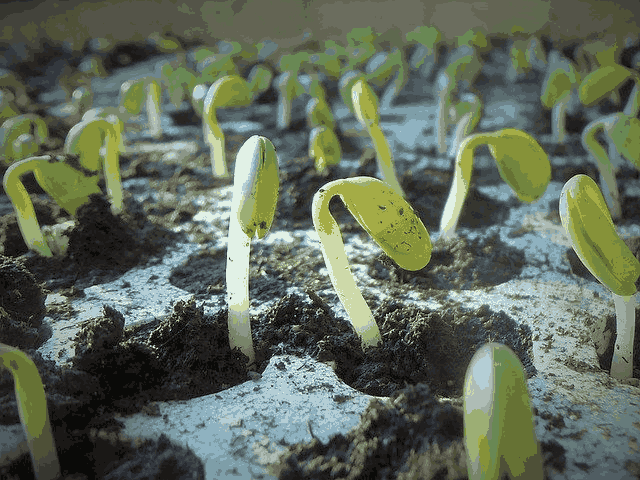What are the impacts of protein for kids growth? Western kids stand taller for their high protein consumption – how can Indians make-up? How many times have you looked with awe at a smart, tall, and bright kid? Invariably kids from the western parts of the world are taller than their counterparts from the eastern world. The general notion is that the former has a height edge over the latter due to their genetic makeup.
The reality, however, is that this notion only partly explains this phenomenon. In addition to the genetic make-up, kids gain height as a result of the high protein food they eat.
We know that balanced diet is a remedy for a healthy body. The argument does hold water as a balanced diet provides all the vital nutrients and minerals to the body. One such critical micronutrient in one’s diet is proteins. Proteins are formed of amino acids that are rich in enzymes, hormones, and antibodies. These constituents stimulate an individual’s growth and also assist the ineffective working of the body functions. Thus, foods that provide high protein for kids play a pivotal role in helping them gain height.
How can parents augment the intake of protein for kids growth?

The answer is pretty straight forward—the use of food items that ensure high protein for kids.
The body requires 20 different forms of amino acids to function optimally. While 11 are non-essential amino acids as they can be prepared naturally in the body, the remaining nine are listed as essential amino acids. These are sourced through our daily diet. Also, as the body cannot store proteins, it is essential to get the right quantities every day.
Proteins are naturally present in a wide range of food that we eat daily. Interestingly, a protein-rich food can be classified into plant-based protein and animal-based protein depending upon their source of origin. This classification helps parents of vegetarian and non-vegetarian children and those who want to avoid a particular category of protein due to medical reasons.
The awareness of the different protein sources allows open food choices without falling short of the daily recommended dose of protein for child growth. But whatever your child eats, be rest assured, all protein deficiency can be met with a glassful of the best protein drink for kids like the Super Milk Active Kids protein by Gritzo.
Also Read: What Foods To Eat After Hernia Surgery And What Should Avoid?
Classification of Proteins
Animal-Based Protein
As the name suggests, animal-based proteins are obtained from animals. Rich sources of animal proteins include fish, chicken, meat, poultry, egg whites, and dairy, including milk, cheese, curd, et al.
Plant-Based Protein
Individual plants, too, are rich in proteins. Foods like soymilk, peanut butter, tofu, nuts are rich sources of plant-based proteins. In addition to these, lentils, chickpeas, green peas, broccoli, and seeds like chia, hemp, and quinoa pack a ton of plant-protein. One can also count on high-protein fruits like guava, avocado, apricots, kiwifruits to meet the daily protein requirements.
Protein For Kids: Animal Protein Vs. Plant Protein
Amino Acid Profile
Animal-based proteins are known to contain all the nine essential amino acids required by the human body in the required quantities. On the other hand, plant-based proteins are often low on individual amino acids like methionine, lycine, isoleucine, and tryptophan.
Complete Protein
Animal proteins have a formulation and structure similar to that of the proteins found in the human body and are thus considered a complete source of protein. Whereas, plant-based proteins are considered incomplete because of their amino acid profile. Thus, various foods are to be included in the daily diet to provide a balanced amount of high protein for kids.
Different Nutrient Content
In addition to the desired quantity of proteins (essential amino acids), the animal-based proteins are naturally rich in additional nutrients like Vitamin B12, Vitamin D, Omega3 Fatty Acid, Heme-Iron zinc. On the other hand, while plants-based food lacks the nutrients mentioned earlier, they are rich in a plethora of other nutrients.
Also Read: Best Diet Tips For Diabetes In 2020
Why Westen Kids Stand Tall?

As compared to Indian kids, western kids are primarily non-vegetarian. Thus, they consume an excellent protein source that confers a taller body structure and a more muscular physique.
But depending totally on animal-based proteins to fulfill the protein requirements is not a good option either. According to medical research, overconsumption of animal-based proteins may have its own set of medical complications.
Thus, proteins for child growth must come from a judicious blend of both animal and plant-based sources. Parents must also add-on the best protein drink for kids to ensure that children consume the recommended daily dose of proteins every day.
Gritzo, a noted protein nutrition brand, ensures that it’s Super Milk formula offers complete nutrition and high protein for kids. It’s scientifically advanced formula crafted from high-quality whey protein and fortification with 21 vital nutrients makes it the best protein drink for kids. Not to miss, the yummy natural chocolate flavor is every child’s favorite.
Must Read: How To Get Healthy And Stay Healthy?
Image by Foundry Co from Pixabay



